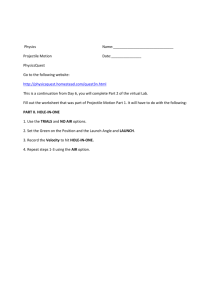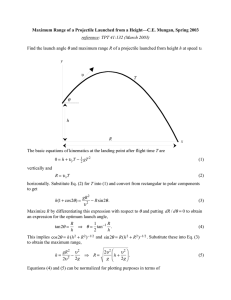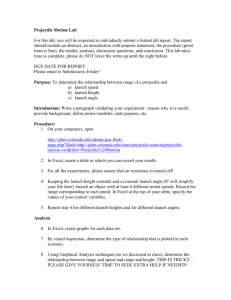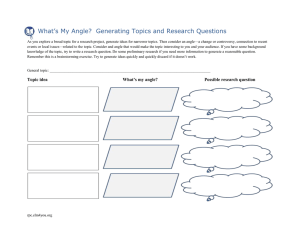PROJECTILE MOTION Equipment Projectile Motion Apparatus w/Table Clamp
advertisement
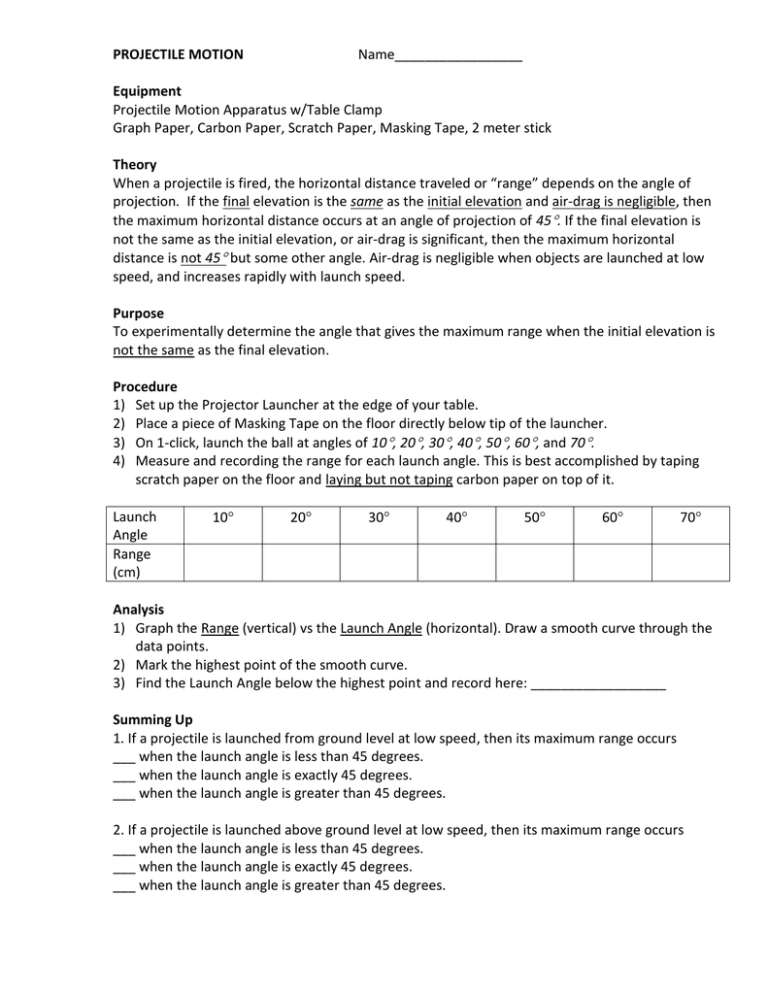
PROJECTILE MOTION Name_________________ Equipment Projectile Motion Apparatus w/Table Clamp Graph Paper, Carbon Paper, Scratch Paper, Masking Tape, 2 meter stick Theory When a projectile is fired, the horizontal distance traveled or “range” depends on the angle of projection. If the final elevation is the same as the initial elevation and air-drag is negligible, then the maximum horizontal distance occurs at an angle of projection of 45. If the final elevation is not the same as the initial elevation, or air-drag is significant, then the maximum horizontal distance is not 45 but some other angle. Air-drag is negligible when objects are launched at low speed, and increases rapidly with launch speed. Purpose To experimentally determine the angle that gives the maximum range when the initial elevation is not the same as the final elevation. Procedure 1) Set up the Projector Launcher at the edge of your table. 2) Place a piece of Masking Tape on the floor directly below tip of the launcher. 3) On 1-click, launch the ball at angles of 10, 20, 30, 40, 50, 60, and 70. 4) Measure and recording the range for each launch angle. This is best accomplished by taping scratch paper on the floor and laying but not taping carbon paper on top of it. Launch Angle Range (cm) 10 20 30 40 50 60 70 Analysis 1) Graph the Range (vertical) vs the Launch Angle (horizontal). Draw a smooth curve through the data points. 2) Mark the highest point of the smooth curve. 3) Find the Launch Angle below the highest point and record here: __________________ Summing Up 1. If a projectile is launched from ground level at low speed, then its maximum range occurs ___ when the launch angle is less than 45 degrees. ___ when the launch angle is exactly 45 degrees. ___ when the launch angle is greater than 45 degrees. 2. If a projectile is launched above ground level at low speed, then its maximum range occurs ___ when the launch angle is less than 45 degrees. ___ when the launch angle is exactly 45 degrees. ___ when the launch angle is greater than 45 degrees.
